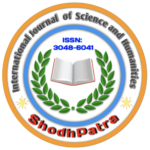| Article Title |
Balancing Bureaucracy and Democracy: The Indian Experience |
| Author(s) | Dr. Krittibas Datta. |
| Country | India |
| Abstract |
India, the world’s largest democracy, faces the unique challenge of balancing a vast and powerful bureaucracy with the principles of democratic governance. This article examines the evolution of the Indian bureaucracy from its colonial roots in the Indian Civil Service (ICS) to its current form in the Indian Administrative Service (IAS). The study highlights the interdependence between bureaucracy and democracy, focusing on the strengths and challenges that arise in this relationship. Bureaucracy ensures stability and continuity in governance, yet faces issues of political interference, inefficiency, and lack of accountability. The article also explores reforms such as the Right to Information (RTI) Act, decentralization efforts, and initiatives like Digital India that aim to improve transparency and public engagement. Through case studies like MGNREGA and Kerala’s decentralized planning model, it illustrates successful attempts to align bureaucratic efficiency with democratic values. The conclusion emphasizes the need for ongoing reforms to ensure a responsive, efficient, and accountable bureaucracy in India’s evolving democratic framework. |
| Area | Political Science |
| Published In | Volume 1, Issue 8, August 2024 |
| Published On | 31-08-2024 |
| Cite This | Datta, K. (2024). Balancing Bureaucracy and Democracy: The Indian Experience. ShodhPatra: International Journal of Science and Humanities, 1(8), pp. 58-67. |
ShodhPatra: International Journal of Science and Humanities (SPIJSH)

 View / Download PDF File
View / Download PDF File